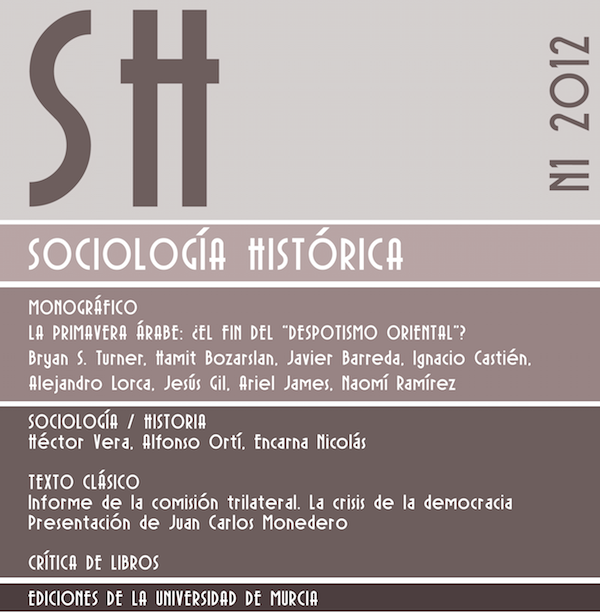La ciudadanía árabe: la Primavera Árabe y sus consecuencias no intencionales
Resumen
La oleada de protestas y revueltas producidas a lo largo del norte de África y Oriente Medio durante la primera mitad de 2011 ha despertado un interés considerable tanto en el ámbito periodístico como en el académico. Aunque originadas en Túnez, la pieza central de estos levantamientos fue la revolución del 25 de enero en Egipto, que acabó con la salida del poder del Presidente Hosni Mubarak, la elección popular de Mohamed Morsi y la creación de una comisión constituyente. Una revuelta popular en Libia acabó con el asesinato del coronel Gadafi y el arresto de su hijo. En Yemen, el equilibrio inestable entre el norte tribal y el sur modernizado comenzó a romperse. A pesar del entusiasmo general por que se produjera un proceso pacífico de democratización, desde el otoño de 2012 predomina un mayor realismo, si no cinismo, sobre las perspectivas de un cambio social duradero. Me referiré a este desarrollo insospechado de la Primavera Árabe y sus revuelas populares como “el invierno de nuestro descontento”.
Hay una inquietud muy extendida sobre lo que pueda venir tras el derrocamiento de los regímenes de Yemen, Túnez, Libia y Egipto, y aún una mayor ansiedad sobre lo que pueda suceder, si algo sucede, tras el enfrentamiento civil en Siria. De las elecciones democráticas en Túnez y Egipto han salido gobiernos y cambios legislativos inspirados en el conservadurismo islámico más que en un proyecto democrático secularizado. El deterioro de los derechos de las mujeres que se deduce de la nueva legislación es un claro indicador en este sentido. Analizaré estos procesos valiéndome de la noción weberiana de las consecuencias no intencionales de la acción y discutiendo si estas sociedades lucharán por crear ciudadanía, sociedades civiles viables e instituciones políticas democráticas y transparentes. Es poco probable que los movimientos sociales sobrevivan si no permean las instituciones locales y grupos sociales. El desarrollo de la ciudadanía depende de la consolidación de una clase media –una clase social casi por completo ausente en la región, con la excepción de Turquía. Los Hermanos Musulmanes se fortalecen gracias a su prolongada implicación a nivel local, de ahí que los cambios sociales de carácter más conservador se hayan impuesto poco a poco a los elementos más inclusivos y secularizadores de la revolución.
Descargas
-
Resumen10650
-
PDF2306
-
PDF 2306
Las obras que se publican en esta revista están sujetas a los siguientes términos:
1. El Servicio de Publicaciones de la Universidad de Murcia (la editorial) conserva los derechos patrimoniales (copyright) de las obras publicadas, y favorece y permite la reutilización de las mismas bajo la licencia de uso indicada en el punto 2.
2. Las obras se publican en la edición electrónica de la revista bajo una licencia Creative Commons Reconocimiento-NoComercial-SinObraDerivada 4.0 España (texto legal). Se pueden copiar, usar, difundir, transmitir y exponer públicamente, siempre que: i) se cite la autoría y la fuente original de su publicación (revista, editorial y URL de la obra); ii) no se usen para fines comerciales; iii) se mencione la existencia y especificaciones de esta licencia de uso.
3. Condiciones de auto-archivo. Se permite y se anima a los autores a difundir electrónicamente las versiones pre-print (versión antes de ser evaluada) y/o post-print (versión evaluada y aceptada para su publicación) de sus obras antes de su publicación, ya que favorece su circulación y difusión más temprana y con ello un posible aumento en su citación y alcance entre la comunidad académica. Color RoMEO: verde.










